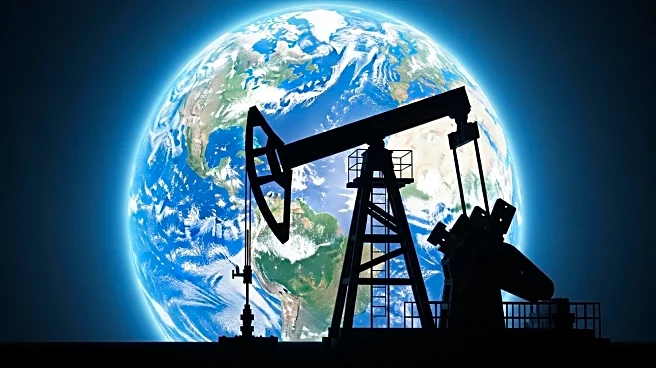What's Happening?
BP has increased its forecasts for oil and gas demand, indicating that the global net zero target for 2050 may not be achieved. The company's annual outlook report estimates oil use to reach 83 million barrels per day by 2050, an 8% increase from previous estimates. Natural gas demand is also projected to rise to 4,806 cubic meters annually by 2050. BP's chief economist, Spencer Dale, noted that geopolitical tensions, such as the war in Ukraine and conflicts in the Middle East, have heightened demands for national energy security. Despite growth in renewable energy, oil is expected to remain the largest source of global energy supply for the next two decades.
Why It's Important?
The revised forecasts by BP highlight the challenges in transitioning to clean energy and achieving global net zero targets. The continued reliance on oil and gas could hinder efforts to limit global temperature rises to 2°C, as emissions are projected to exceed the carbon budget by the early 2040s. This scenario raises concerns about the economic and social costs of delayed action on climate change. The report underscores the need for accelerated electrification and domestic low-carbon energy production to reduce dependency on imported fossil fuels.
What's Next?
BP's outlook suggests that oil demand will peak at 103 million barrels per day by 2030, five years later than previously forecast. The company anticipates that wind and solar power will meet over 80% of the increase in electricity demand by 2035, with significant contributions from China. The report calls for urgent action to shift the energy system's current trajectory to avoid exceeding the carbon budget and to mitigate the risks associated with delayed climate action.
Beyond the Headlines
BP's shift in strategy, moving away from green targets, has attracted criticism from environmental campaigners. The company's decision to ramp up oil and gas production reflects investor dissatisfaction and pressure from activist hedge funds. The report also highlights the emergence of 'electrostates,' countries that may prioritize domestic low-carbon energy production to enhance energy security.










